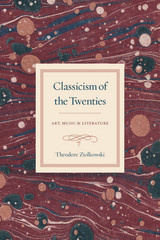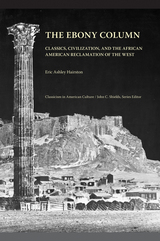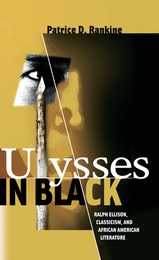
In Classicism of the Twenties, Theodore Ziolkowski offers a compelling account of that movement. Giving equal attention to music, art, and literature, and focusing in particular on the works of Stravinsky, Picasso, and T. S. Eliot, he shows how the turn to classicism manifested itself. In reaction both to the excesses of neoromanticism and early modernism and to the horrors of World War I—and with respectful detachment—artists, writers, and composers adapted themes and forms from the past and tried to imbue their own works with the values of simplicity and order that epitomized earlier classicisms.
By identifying elements common to all three arts, and carefully situating classicism within the broader sweep of modernist movements, Ziolkowski presents a refreshingly original view of the cultural life of the 1920s.

“The Ebony Column is superbly researched, skillfully utilizing primary and secondary sources and the most up-to-date scholarship. I was impressed by the amount of deep archival research that was conducted in order to complete this book.” —Cedrick May, author of Evangelism and Resistance in the Black Atlantic, 1760–1835
In The Ebony Column, Eric Ashley Hairston begins a new thread in the ongoing conversation about the influence of Greek and Roman antiquity on U.S. civilization and education. The first book to appear in a new series, Classicism in American Culture, The Ebony Column passionately demonstrates how the myths, cultures, and ideals of antiquity helped African Americans reconceptualize their role in a Euro-American world determined to make them mere economic commodities and emblems of moral and intellectual decay. To figures such as Wheatley, Douglass, Cooper, and DuBois, classical literature offered striking moral, intellectual, and philosophical alternatives to a viciously exclusionary vision of humanity, Africanity, the life of the citizen, and the life of the mind.
Eric Ashley Hairston is Associate Professor of English and of Law and Humanities at Elon University. He was a contributor to New Essays on Phillis Wheatley, edited by John C. Shields.

In this groundbreaking work, Patrice D. Rankine asserts that the classics need not be a mark of Eurocentrism, as they have long been considered. Instead, the classical tradition can be part of a self-conscious, prideful approach to African American culture, esthetics, and identity. Ulysses in Black demonstrates that, similar to their white counterparts, African American authors have been students of classical languages, literature, and mythologies by such writers as Homer, Euripides, and Seneca.
Ulysses in Black closely analyzes classical themes (the nature of love and its relationship to the social, Dionysus in myth as a parallel to the black protagonist in the American scene, misplaced Ulyssean manhood) as seen in the works of such African American writers as Ralph Ellison, Toni Morrison, and Countee Cullen. Rankine finds that the merging of a black esthetic with the classics—contrary to expectations throughout American culture—has often been a radical addressing of concerns including violence against blacks, racism, and oppression. Ultimately, this unique study of black classicism becomes an exploration of America’s broader cultural integrity, one that is inclusive and historic.
Outstanding Academic Title, Choice Magazine
READERS
Browse our collection.
PUBLISHERS
See BiblioVault's publisher services.
STUDENT SERVICES
Files for college accessibility offices.
UChicago Accessibility Resources
home | accessibility | search | about | contact us
BiblioVault ® 2001 - 2024
The University of Chicago Press









